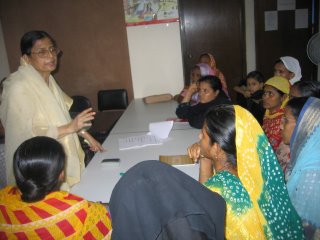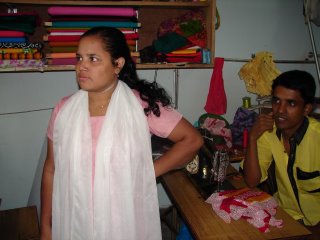
Kasia putting her thumbprint on the official-government-paper document (as a witness).

Anders signing the document (also as a witness).

Shazeda, a member of the Vegetable and Fish Cooperative, signing her name.

Sufia, a member of the Tailoring Cooperative, getting ready to put down her thumbprint (with some help from Khala).

Sonaban, a member of the Vegetable and Fish Cooperative, signing her name.

Khala signing her name (as a witness).

Joygun, another member of the Vegetable and Fish Cooperative, signing her name.

































